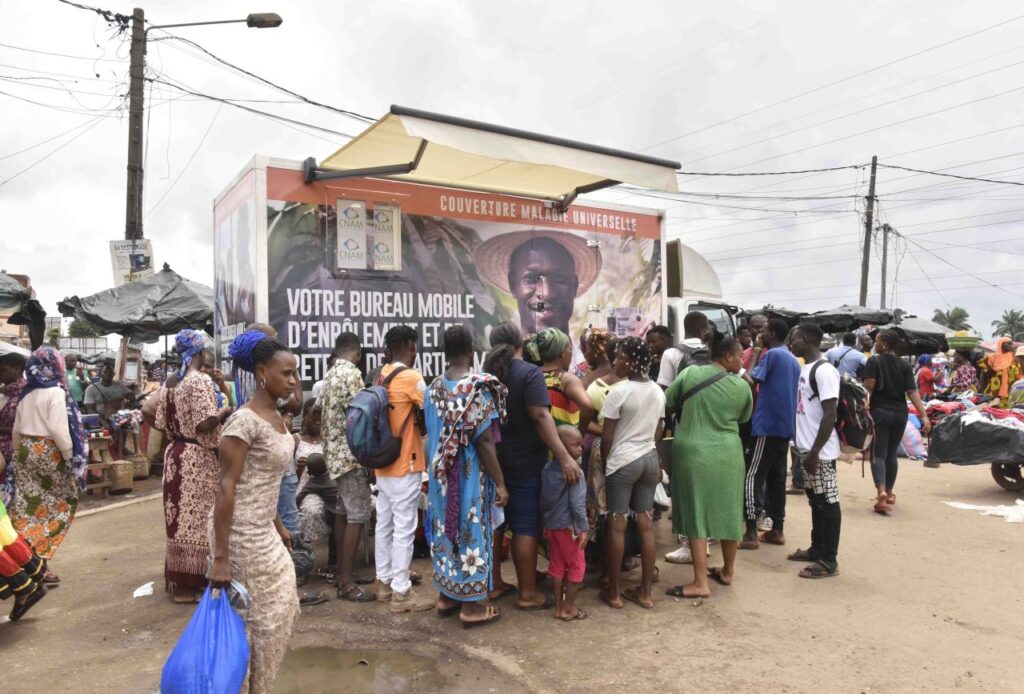ABIDJAN, Ivory Coast (AP) — Health authorities in Ivory Coast have launched mobile registration centers for the country’s universal health coverage system, which has been criticized since its launch in 2019 for making it difficult to access benefits.
Côte d’Ivoire is one of the few countries in West Africa to offer universal health coverage, but five years later, less than half the population is covered. The plan, known locally by its French acronym CMU, is meant to cover 70 percent of a population’s health care costs for a monthly fee of 1,000 West African CFA francs (about $1.65).
But many of the participants who successfully enrolled have reported glitches, such as coupons given to them by hospitals that were supposed to provide the medicines later not being accepted by pharmacies, forcing patients to pay out of pocket.
The mobile registration centers, which are being deployed in markets and remote residential areas, aim to enable Ivorians to register for the program and receive their cards on the spot, ensuring immediate access to care in hospitals, clinics and pharmacies across the country.
Between 2019 and this year, only 13 million people, or 40% of the population, were able to register.
The country’s Health Minister Pierre Dimba said the mobile centres were aimed at reaching people who were unable to register for reasons such as long working hours.
“We adopted a method that worked well during COVID-19 vaccination, which was to visit people in markets and remote areas and get them to sign up for vaccination,” he said.
Resident Bruno Anyssane already has a CMU card but came to Abidjan’s mobile registration centre looking for information on how to put it to good use.
He said that when his son was being treated for malaria at the hospital, the hospital ran out of medicine and he was given a coupon and told to look for it at a local pharmacy.
“When we went to the pharmacy and showed the coupon, they said it was only for government employees and we couldn’t use it,” Agnisan said. “We went to every pharmacy but it didn’t work.”
In the end, he had to pay for the medication out of his own pocket, he said.
Samuel Tuffet, another local resident who visited the relocation center to get an update on the program’s coverage, expressed the same concerns as Agnisan.
“There are a lot of pharmacies where you can take the card and they don’t accept it, so I want to know which pharmacies will accept the card,” he said. “Also, when I take the card to the hospital, they say it can’t be used. So I don’t even know what the hell this card is worth.”
Martin Abu, a resident who came with his family to register for the first time, was hopeful. “We don’t know what’s going to happen. We don’t know what’s going to happen tomorrow,” he said.
Health Minister Dimba said he hoped the scheme would become a basic insurance scheme covering all Ivorians, with private insurance only being used as a supplement.
He added that the goal is to have 20 million Ivorians registered by the end of this year.
___
The Associated Press receives funding for global health and development coverage in Africa from the Bill & Melinda Gates Foundation Trust. The AP is solely responsible for all content. For AP’s philanthropic collaboration criteria, a list of supporters and areas of coverage funded, visit AP.org.
Close Modal
Suggest a fix
Suggest a fix
Source link

